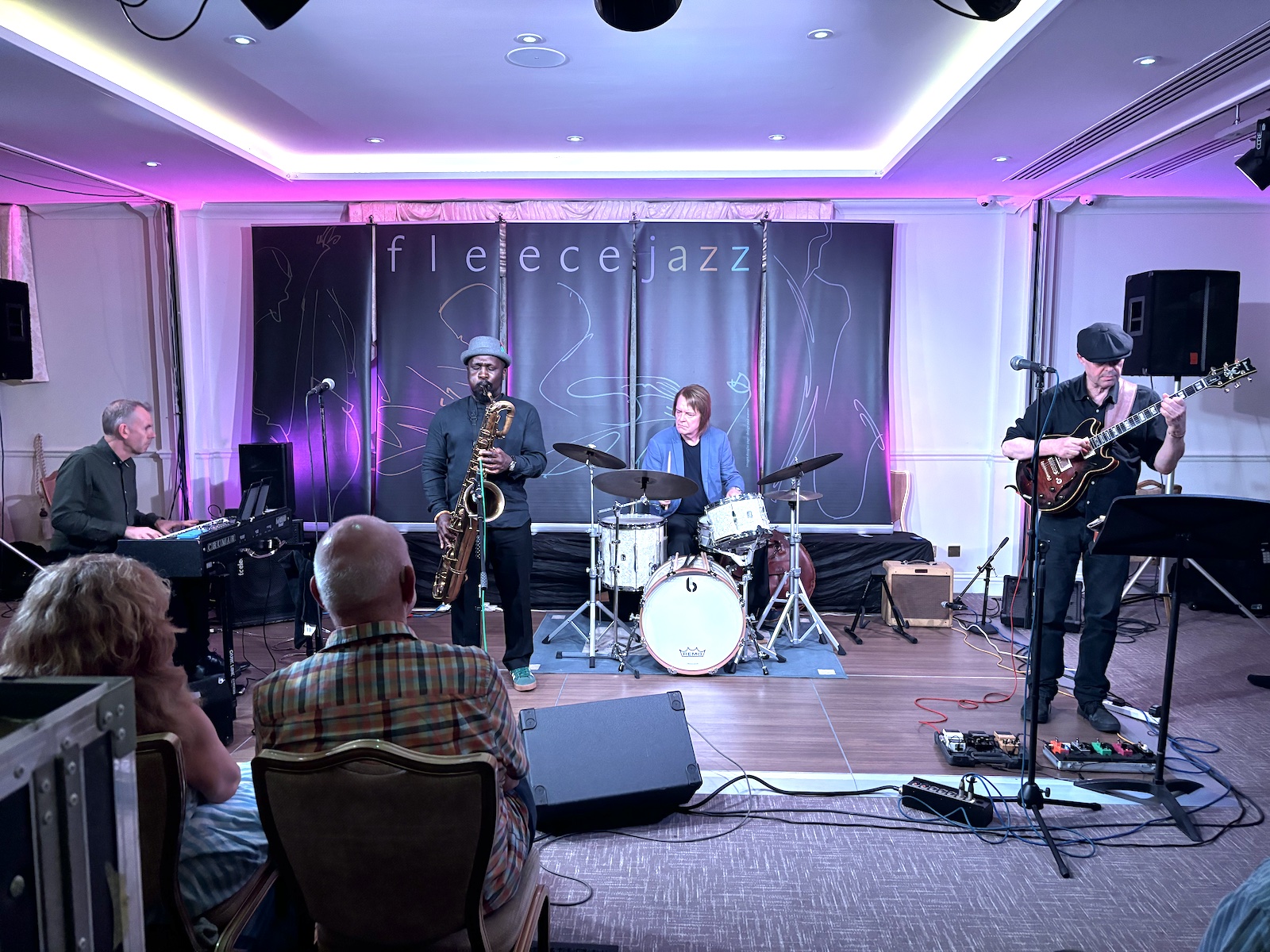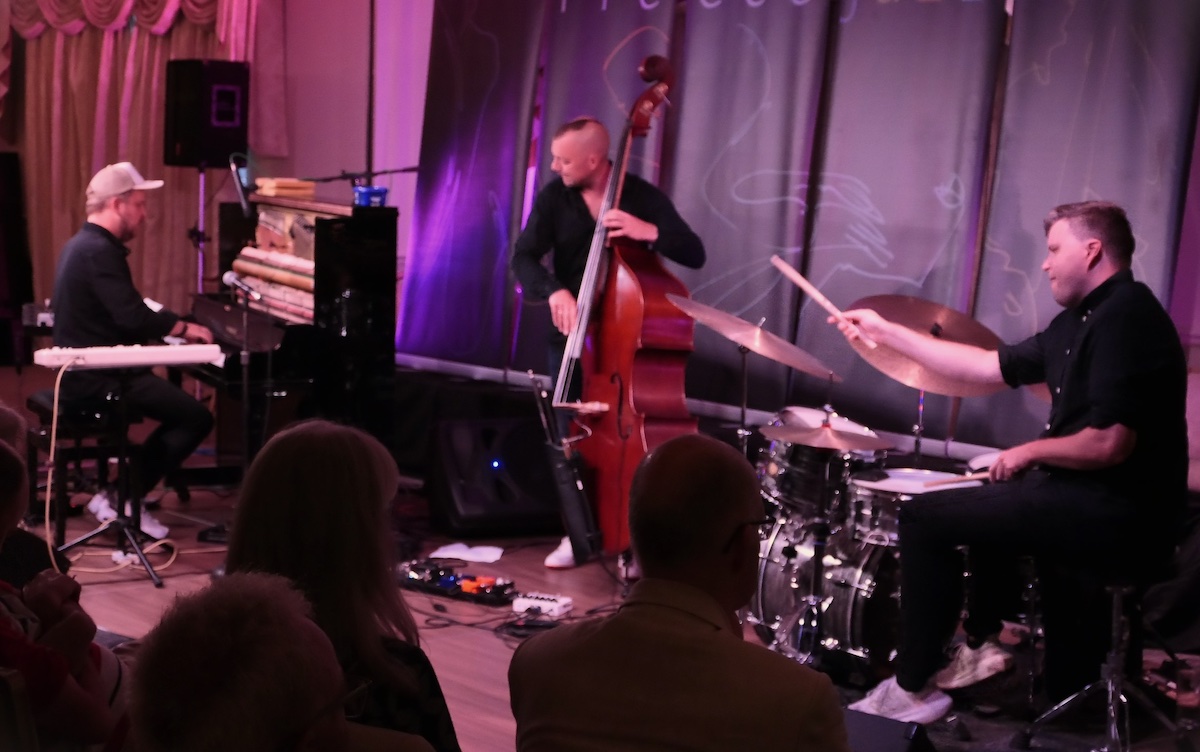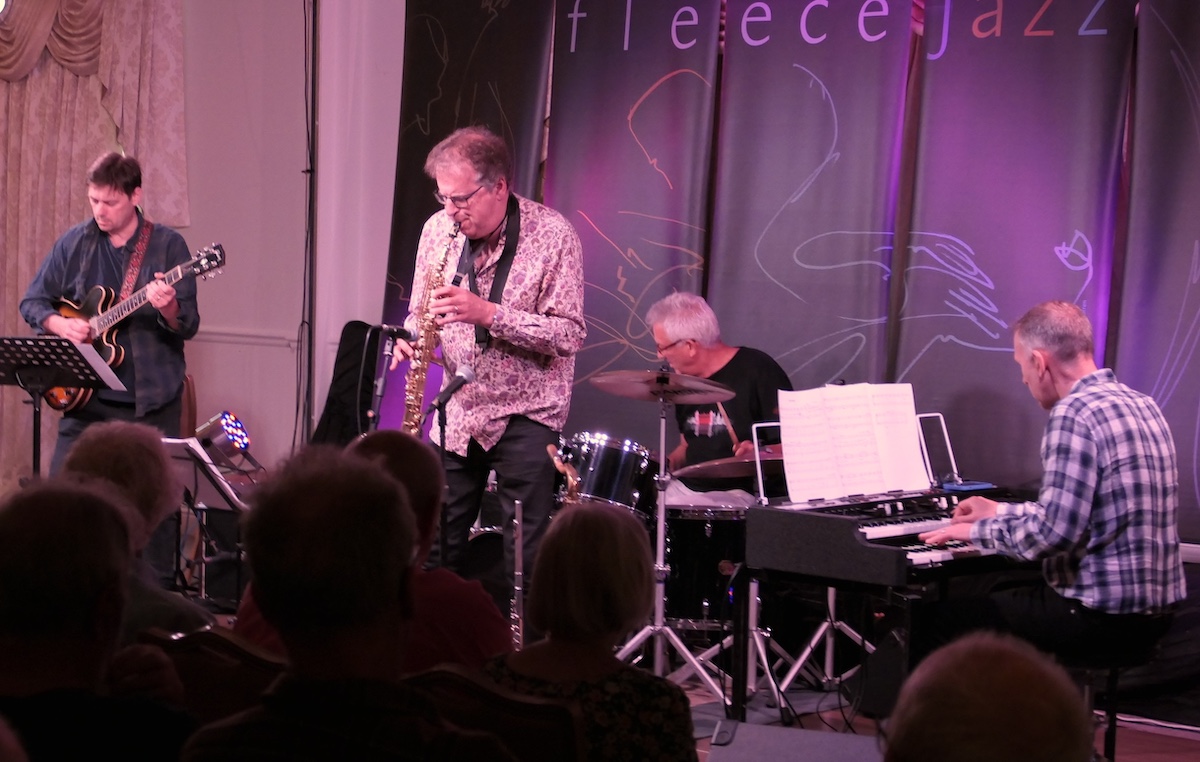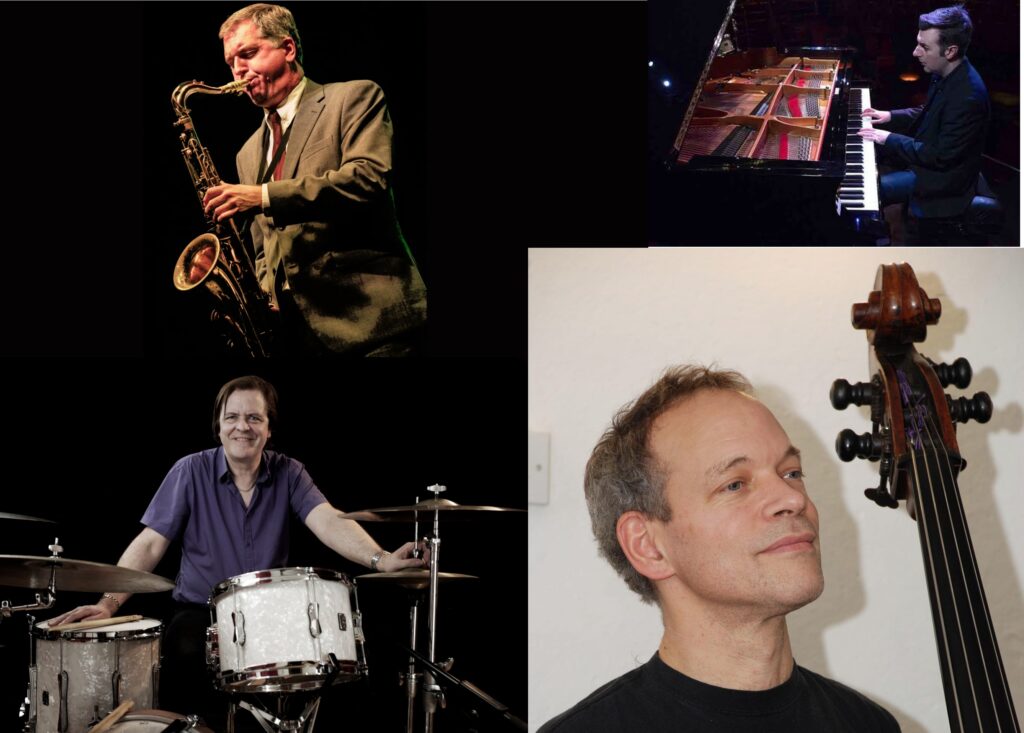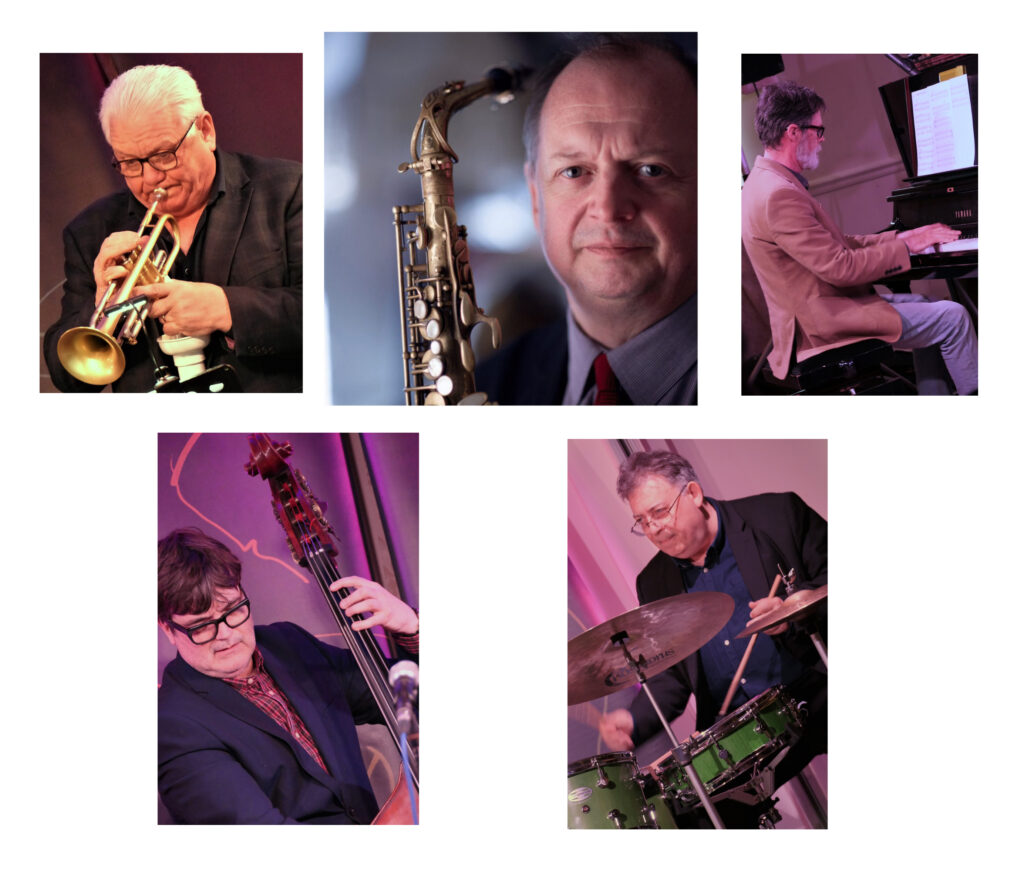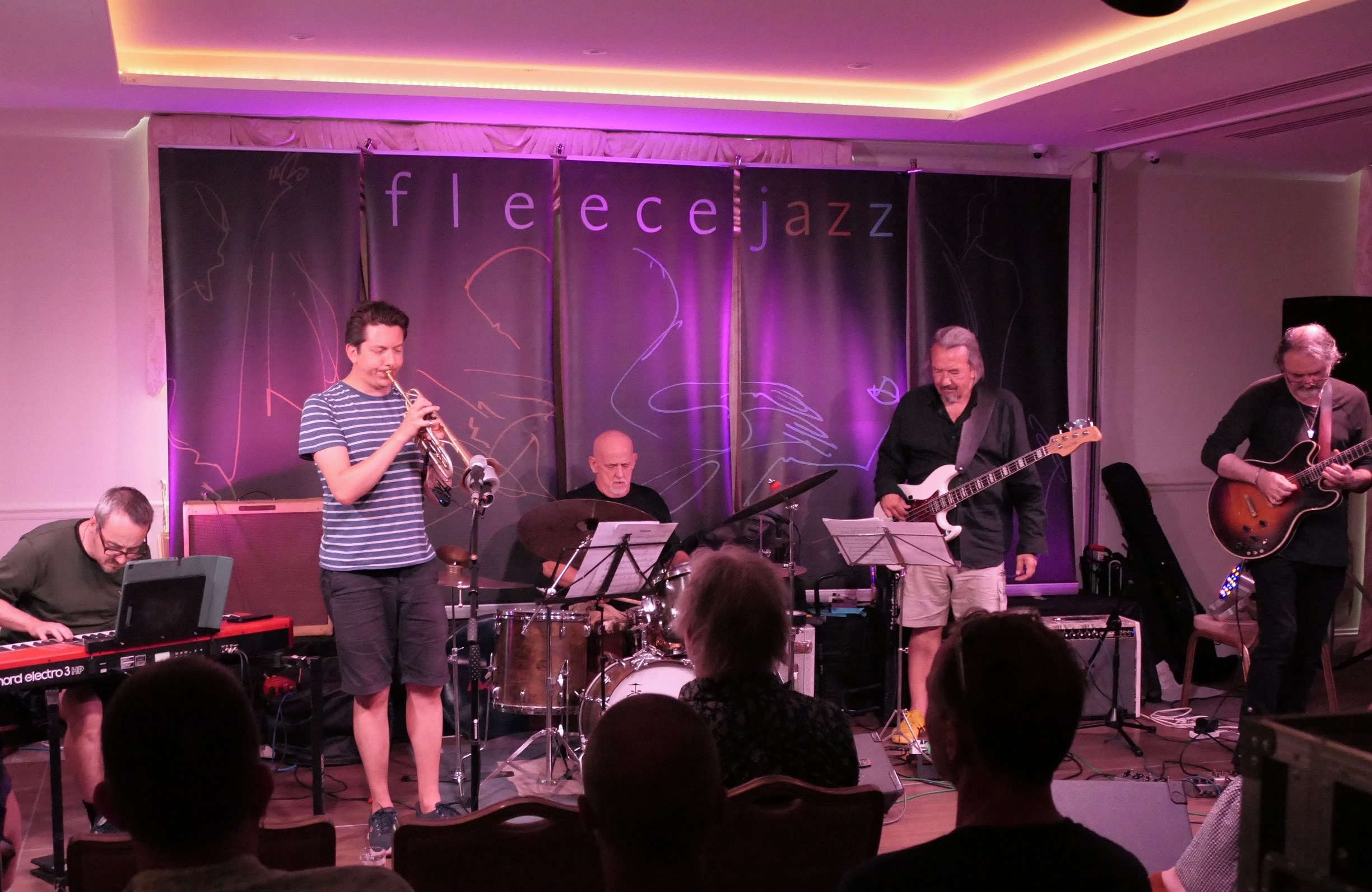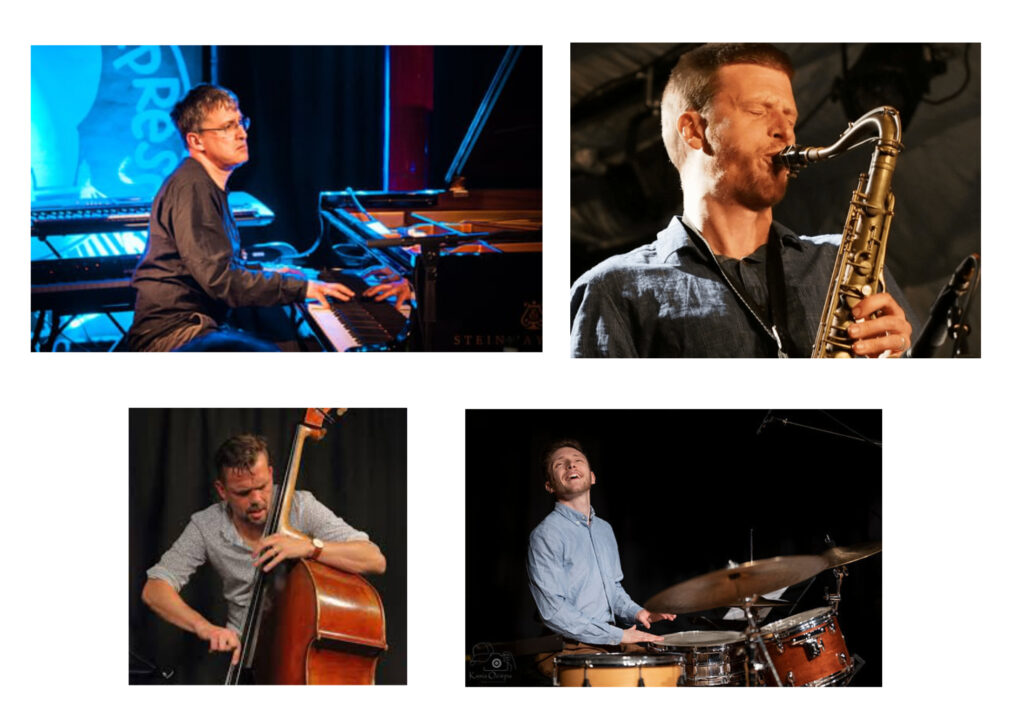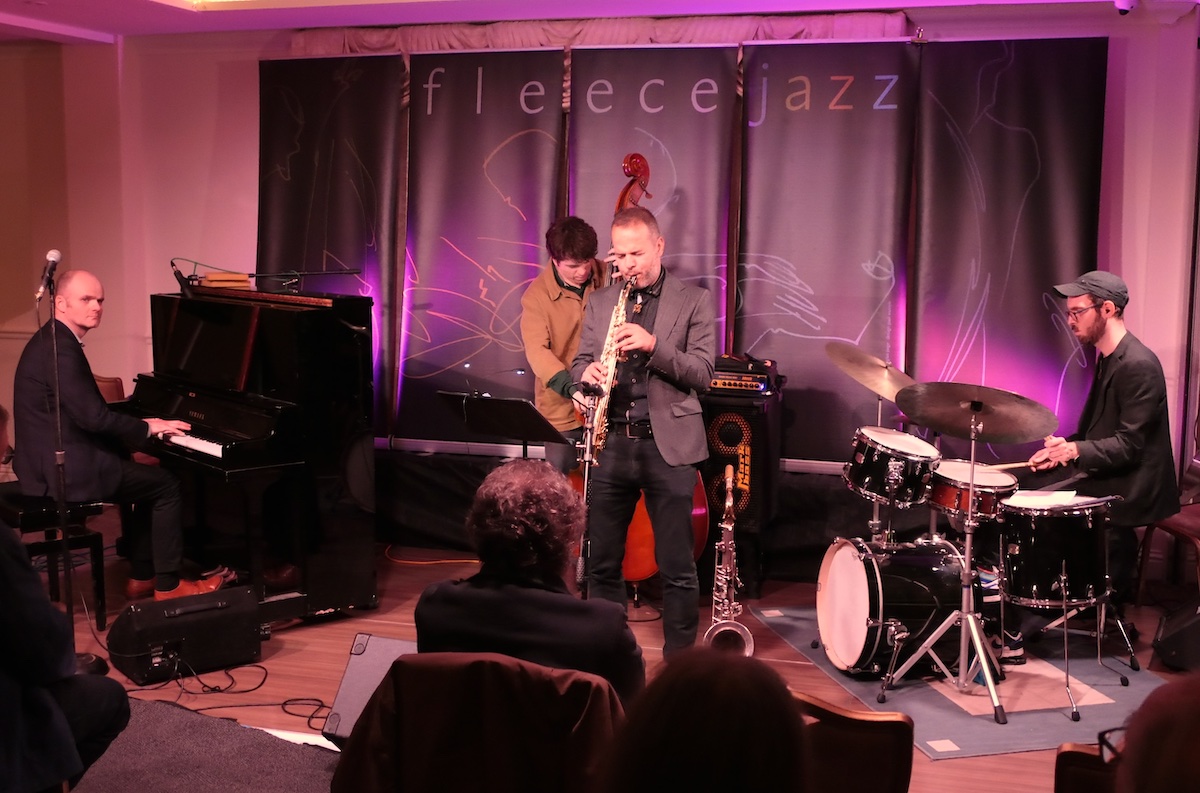
Steve said:
We have had both lead musicians at Fleece Jazz in various guises over the past few years and it is always a pleasure to welcome them back. Their warm, intimate delivery, both verbally and musically, with a clear sense of shapely melodic ideas in their interpretation and composition, was a real treat.
According to Vasilis Xenopoulos, he and Paul Edis began playing together 20 years ago, when they had both relocated to West London to study: Paul to hone his compositional skills and Vasilis to (partly) avoid compulsory military service in Greece! Their latest recording features original music inspired by the many places they’ve called home over the years.
We started with one of the few non-original compositions of the evening, a jazz arrangement of the Dvorak piece “Going Home”, from the composer’s “New World Symphony”. Paul’s influence as a musician with a foot in both the jazz and classical camps is apparent, but it is Vasilis’ lead on tenor that most defines the piece as it brings an easy-going swing to the delivery which is reflected by each member of the rhythm section.
“The Coast” is inspired by Edis’ roots in the North-East of England and adopts a theme reminiscent of the music of Antonio Carlos Jobim, bringing the warmth and laid-back feel of Brazilian music to Tyneside. Vasilis, now on soprano, delivered a beautifully lucid exposition which Paul developed in his expressive lyricism on piano. The refrain was an earworm that reminded me of “Cry Me A River”. We were fortunate to have an excellent bassist deputising for the gig in Simon Read. The fullness of his tone and his agility as a soloist across the whole range of the bass was a pleasure to watch as he took his cue from both lead musicians. The steady Latin shuffle of the number was ably delivered by Billy Pod on drums.
Sonny Rollins’ “Valse Hot”, gave Vasilis a chance to pay homage to one of his ‘straight-ahead jazz’ heroes, before we returned to another Paul Edis composition, “From Something to Somewhere”, a ballad that combined Vasilis’ gently brooding tenor sax sound with a more straight forward piano lyricism. A beautifully flowing solo from Paul was followed by another wonderfully melodic bass solo from Simon, with Billy Pod using his brushes sympathetically.
Paul Edis was last at Fleece Jazz with the fine jazz singer, Jo Harrop, who collaborated with Paul on the award-winning album, “When Winter Turns to Spring”. The next number, “A Rainy Day in Manhattan”, was composed while they were both on tour promoting the album and is yet another fine example of Edis’ compositional skills and an ear for a lush melody.
The first Xenopoulos composition of the evening, “Get Off My Lawn” concluded the first set. Based on the chord changes of Cole Porter’s “You’d Be So Nice to Come Home To”, it is a rousing and fiercely swinging piece that might even be described as a “burner”. Indeed, Vasilis burns through it on tenor sax, but this is sensitively softened by Edis’ sparkling piano playing and underpinned by Read on walking bass and Pod’s brisk drumming.
The second set opened with “Lockdown London” – a piece written when Paul came down to London to “make his jazz fortune” in March 2020. Vasilis’ keening sound on soprano sax reflected the other-worldly feeling of the deserted city streets in those days of the pandemic just a few years ago. “Memories of Home” was Vasilis’ second composition to feature and saw him resplendent on tenor sax, soloing expansively before Edis came in with another flowing piano solo. Read also featured with another fluent bass solo that again demonstrated his gift for melody. “Mikey’s Samba”, dedicated to Edis’s first car, a Nissan Micra, was yet another nod to Jobim. This lively, jaunty number featured Xenopoulos on flute, weaving around the infectious Latin rhythms from Edis, Read and Pod. The mood shifted once again with the ballad, “Coming Home to You”, the last Edis composition of the evening, written for his wife on returning late from a gig. Unashamedly romantic, this number was a firm hit with our audience, with comments like “oh, beautiful” rippling across the room.
The last listed number was an adaptation of Gershwin’s “I’ve Got Rhythm” (included for the lines “Old man trouble, I don’t mind him/ You’ll never find him ‘round my door”), a firm jazz standard that always lifts the mood and gave the band an opportunity to round off a thoroughly enjoyable evening. But not quite! Despite having some way to travel, we were treated to one final tune with Mel Tormé’s “Comin’ Home Baby” which sent us all (musicians and audience) home with a deep sense of satisfaction. Nay, elation!
Dave said:
It was wonderful to have the warm tone of Vasilis’ sax playing back at Fleece Jazz. He can make it cool or rough if he needs to, but the predominant timbre is warm silk. It was lovely to hear a flute again. It is an interesting instrument to mic: flutes have a quiet lower register, and the mic was also used as the band’s talk mic, which both Vasilis and Paul used.
And used very well, with good humour, telling stories connecting the songs to “Feels Like Home”. Sometimes the thread was pulled quite tight (as in “round my door” -> houses have doors -> Feels Like Home).
Paul has a proper left hand; he is a consummate pianist, so great to have him back. There were two people new to Fleece Jazz. The young bassist Simon Read was reading, as he was a dep, but he was deeply part of the band from the off. Billy Pod is an established drummer/composer/leader; he played the room superbly.
On September 25th, a real treat. We will have Chris Ingham on vocals/piano, Paul Higgs on trumpet, Simon Thorpe on bass, George Double on drums, and the music of Hoagy Carmichael. Hoagy II is something I have been much looking forward to. See you there?
Take care,
Dave
VASILIS XENOPOULOS-PAUL EDIS QUARTET SETLIST, FLEECE JAZZ 11/9/24ra
- Going Home – from Antonin Dvorak’s “New World Symphony”
- The Coast (Paul Edis)
- Valse Hot (Sonny Rollins)
- From Something to Somewhere (Paul Edis)
- A Rainy Day in Manhattan (Paul Edis)
- Get Off My Lawn (Vasilis Xenopoulos)
* * * * * * *
- Lockdown London (Paul Edis)
- Memories of Home (Vasilis Xenopoulos)
- Mikey’s Samba (Paul Edis
- Coming Home To You (Paul Edis)
- I’ve Got Too Much Rhythm (adapted from George & Ira Gershwin composition)
Encore: Comin’ Home, Baby – Mel Tormé
